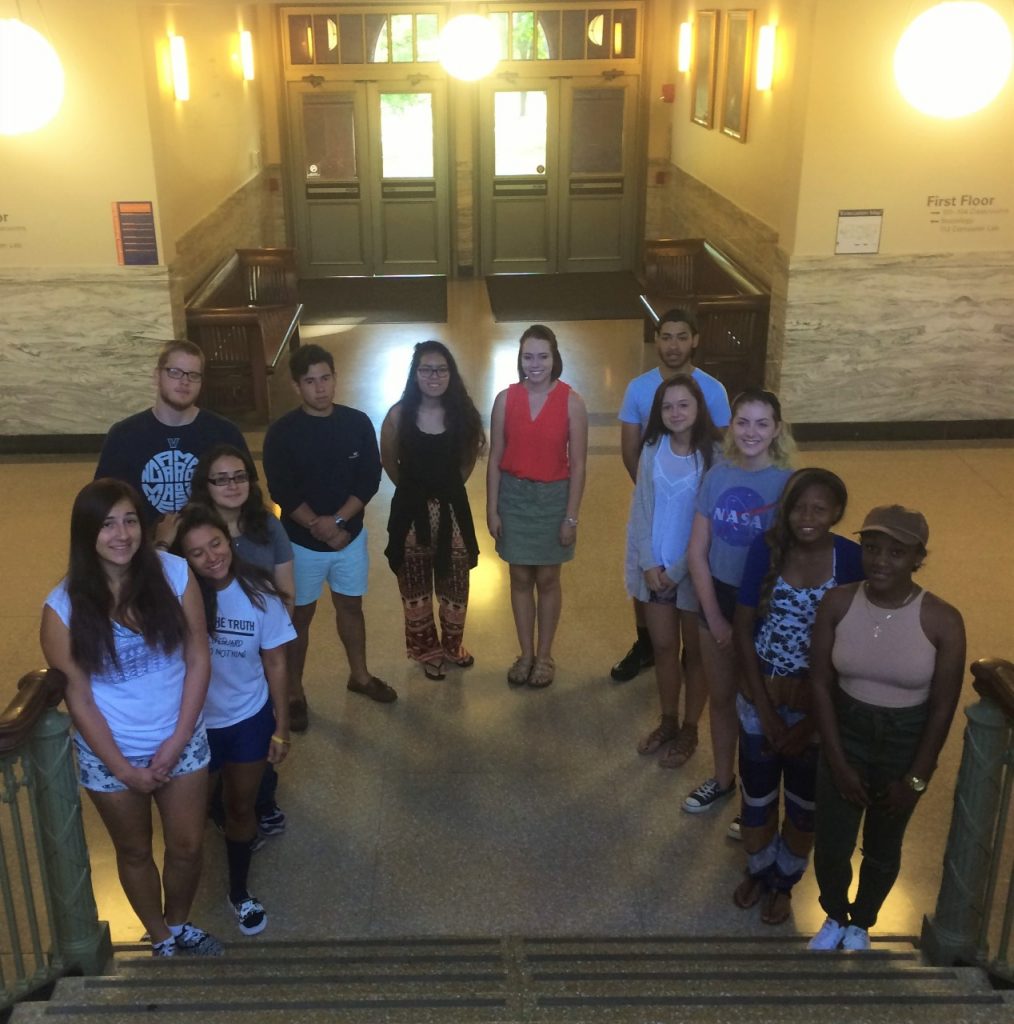Gettysburg welcomes first-ever STEM Scholars cohort
By Kayla Britt, MS&T Editor
Gettysburg College recently welcomed the first group of STEM Scholars, an initiative funded by both the National Science Foundation and Gettysburg College. The grant was part of Gettysburg’s initiative to improve diversity and inclusion on campus.
“My personal interest in this kind of program came after seeing statistics that [despite] the impressive rate of URM students graduating from the college, the number of students in the sciences has [not been as strong],” said program co-director Dr. Darren Glass, Chairperson of the Mathematics Department and Associate Professor of Mathematics here at Gettysburg. “It seemed like the National Science Foundation’s STEM program would be a good way to kill two birds with one stone by giving more financial aid while allowing us to develop programming that will help the students thrive.”
The twelve selected STEM students have all expressed interest in majoring in one of the six major science disciplines–Biology, Biochemistry & Molecular Biology, Chemistry, Physics, Mathematics or Computer Science–and will receive financial support throughout their four years here at Gettysburg.
When asked about his initial reaction upon finding out he was accepted to the program, STEM Scholar Alexander Paredes said, “Honestly, shock. I was surprised to find out that I qualified and was accepted. To be part of such a select group was something I was not expecting.”
The focus of the program is on community building and group organization with an emphasis on developing skills needed to be successful in the sciences. The STEM Scholar group is composed mainly of first-generation students and minorities who are underrepresented in the sciences. Attracting students to the sciences is only one part of the equation; retention is equally as important.
“A significant number of African American and Latino students who arrive at the college planning to study in a STEM field have ended up struggling in their courses and switching to another major,” said Dr. Glass. The program aims to provide connections, support and resources to overcome challenges that may be unique to underrepresented and first-generation students and increase the number of students who complete a science major here at Gettysburg.
Although they have only been on campus for around three weeks, the students have already had sessions with the Garthwait Leadership Center, GRAB, Career Services, the Office of Multicultural Engagement and Academic Advising, along with spending time with the STEM faculty liaisons. And it appears that the students feel the support–student Alexander Paredes said, “I think the program has helped me find guidance. With the personal advisor meetings and the high hopes, I feel pushed to do and be better.”
The grant was written by Dr. Istvan Urcuyo, the STEM Scholars program director, Dr. Darren Glass and Dr. Jackie Milingo, with help from Rhonda Good in the Provost’s Office and Laura Runyan in Development. They then worked with Admissions to develop programming and reach out to students in the target population.
One unique feature of Gettysburg’s STEM Scholars program is that each student received a laptop computer to use during the four years of their undergraduate career. These laptops were generously funded by a group of 117 alumni, staff, board members and community members who donated $18,000 in a show of support for the STEM students and their success.
The STEM scholar students are also participating in a First-Year Seminar taught by Dr. Urcuyo. The students explore questions such as “what is a scientist?” and “what is science?” and talk about challenges that scientists might face. An important aspect of the FYS is discussing how the week is going and any challenges or situations that might have come up. This builds community and familiarity among the students and provides a forum for them to solve any difficulties that could become barriers to success.
“I think what I was most excited about coming to Gettysburg as part of the program was the closeness of the program. When we all arrived a few days earlier than the other students we were all strangers, but because there were so few of us we quickly bonded,” said Paredes.
“My hopes for this group of students is the same as my hopes for all Gettysburg students, that between their hard work and the support at the college the students find a way to thrive in their academic work and set themselves up for a rewarding career and life after graduation. We hope the program gives them the support that will be particularly helpful to succeeding in a STEM major,” concluded Dr. Glass.

